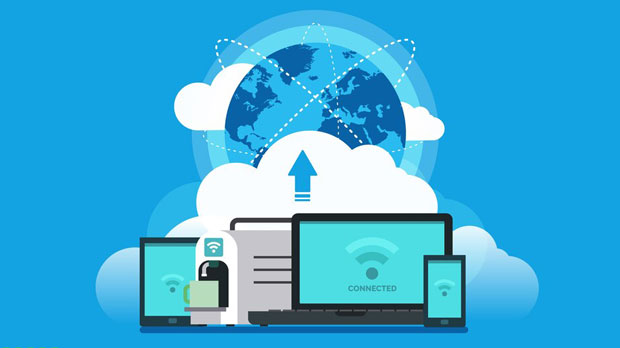In today's data-driven world, managing large-scale data collection efficiently has become an essential capability for businesses, enterprises, and organizations. The py s5 Manager Client is a powerful tool designed to streamline and enhance the process of gathering and analyzing large volumes of data. By leveraging this client, users can optimize their data collection strategies, ensuring the accuracy, integrity, and scalability of the data they work with. This article aims to provide a detailed analysis of the best practices for using the PY S5 Manager Client for large-scale data collection, highlighting its key features, applications, and how it can deliver real value to businesses in various industries. Understanding the Role of PY S5 Manager in Data CollectionThe PY S5 Manager Client is specifically engineered to manage vast amounts of data efficiently, whether it's for real-time collection, processing, or storage. With a focus on scalability and flexibility, it allows organizations to collect data from multiple sources, organize it, and perform complex analysis. The platform integrates with a variety of data sources, providing businesses with a seamless workflow for data collection and processing.The main role of the PY S5 Manager Client is to facilitate automated data collection and ensure that large volumes of data can be captured without errors or significant delays. It supports multi-channel data acquisition, including IoT devices, sensor data, databases, and cloud platforms. With robust data handling capabilities, the PY S5 Manager Client is capable of maintaining high throughput while preserving data quality and consistency, which is crucial for accurate insights.Key Features of PY S5 Manager for Large-Scale Data CollectionThe PY S5 Manager Client offers a range of powerful features that make it an ideal tool for large-scale data collection:1. Scalability: One of the standout features of PY S5 Manager is its ability to scale horizontally, making it perfect for businesses that need to handle growing datasets. Whether you're working with gigabytes, terabytes, or petabytes of data, the system can scale effortlessly to meet demand.2. Automation and Real-Time Data Processing: The client supports real-time data processing, enabling users to collect, analyze, and act on data as it’s being generated. This is especially valuable for applications that require immediate insights, such as monitoring systems or operational dashboards.3. Data Integrity and Accuracy: The platform provides built-in data validation and error correction tools to ensure that the collected data is accurate and free from inconsistencies. This level of attention to data quality is crucial for businesses that rely on precise data for decision-making.4. Flexible Integration: PY S5 Manager offers seamless integration with various databases, APIs, and cloud platforms, allowing businesses to collect data from a wide array of sources. Whether it's machine data, user-generated content, or sensor data, the system can aggregate data from disparate systems and provide a unified view.5. Security and Compliance: With the increasing amount of sensitive data being collected, security is a top priority. PY S5 Manager adheres to industry standards for data encryption and ensures that the data is securely stored and transmitted. The system also supports compliance with various regulatory requirements, such as GDPR and HIPAA, making it suitable for businesses in highly regulated industries.Best Applications of PY S5 Manager in Large-Scale Data CollectionThe versatility of PY S5 Manager enables it to be applied in a variety of industries and use cases. Here are some of the most prominent applications:1. Healthcare and Medical Research: In the healthcare sector, the need for large-scale data collection is critical for research and patient monitoring. The PY S5 Manager Client can collect data from medical devices, patient records, and research databases, enabling healthcare organizations to gain valuable insights for improving patient care and treatment outcomes.2. IoT and Smart Cities: The rise of the Internet of Things (IoT) and smart cities has made data collection more complex but also more essential. PY S5 Manager can aggregate data from a wide range of IoT devices such as smart meters, traffic sensors, and environmental monitoring systems. By collecting and analyzing this data, cities can optimize traffic flow, energy usage, and even improve public safety.3. E-commerce and Retail: In the e-commerce and retail industry, customer data is a goldmine for improving marketing strategies and personalizing customer experiences. PY S5 Manager can collect data from multiple sources, including online transactions, website interactions, and social media activity. With this data, businesses can better understand consumer behavior and tailor their offerings accordingly.4. Manufacturing and Industry 4.0: The shift toward Industry 4.0 requires seamless integration of data from manufacturing processes, sensors, and machines. PY S5 Manager plays a key role in collecting data from production lines, tracking equipment health, and optimizing supply chains. The real-time processing capability helps businesses stay ahead of potential equipment failures or supply chain disruptions.5. Financial Services: The financial sector is another area where large-scale data collection is of paramount importance. Financial institutions can use PY S5 Manager to collect transactional data, market data, and customer interactions, enabling them to perform advanced analytics for risk management, fraud detection, and customer service optimization.Challenges and Solutions in Large-Scale Data CollectionWhile the PY S5 Manager Client is an excellent tool for large-scale data collection, businesses must also be aware of some common challenges that come with managing big data. These include:1. Data Overload: The sheer volume of data collected can sometimes overwhelm systems. It’s essential for businesses to have proper data storage solutions in place and to establish clear data processing pipelines. PY S5 Manager addresses this challenge with its scalable architecture, which allows users to increase capacity as needed.2. Data Integration Issues: With data coming from a variety of sources, integrating it into a cohesive system can be complex. However, PY S5 Manager’s flexible integration capabilities allow it to connect with numerous systems, making the data aggregation process smoother.3. Security and Privacy Concerns: With data breaches becoming more common, securing collected data is critical. PY S5 Manager provides end-to-end encryption and adheres to strict security protocols, ensuring that sensitive information is well-protected.4. Maintaining Data Quality: As data is collected from various sources, ensuring its consistency and accuracy can be challenging. PY S5 Manager has built-in validation tools that help maintain the integrity of the data throughout the collection process.Conclusion: Leveraging PY S5 Manager for SuccessThe PY S5 Manager Client is an invaluable tool for businesses looking to efficiently manage large-scale data collection. By understanding its key features, applications, and best practices, organizations can harness the power of big data to gain actionable insights and drive business success. Whether you are working in healthcare, manufacturing, finance, or any other sector, PY S5 Manager offers the scalability, security, and flexibility required to collect and process vast amounts of data while ensuring its accuracy and integrity. As businesses continue to navigate the complexities of big data, the PY S5 Manager Client stands as a powerful ally in the pursuit of smarter, data-driven decisions.
Nov 13, 2025



































































